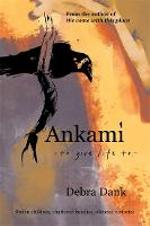‘Be careful what you wish for,’ wrote Aesop, ‘lest it come true.’ Debra Dank had long been desperate to visit the National Archives, to paint a fuller picture of her family, to add flesh to the name-bones and the few precious stories she possessed. What she discovered would shatter everything she thought she knew about her family and her past. She had been aware of her father’s five siblings, some of whom had died before she could come to know them, but there were always whispers and gaps and silences. Certainly, her parents had experiences that affected how Debra grew up, but hers seemed to be one of the very few Aboriginal families who had escaped having children stolen, who had viewed this horror from a seemingly safer distance. But the information she uncovered revealed that her paternal grandmother had given birth to ten children. Four had been taken from her. Ankami is written from the perspective of those left behind, those who search always for the faces of stolen and lost Aboriginal children, now known only through a few cruel, thoughtless words written by a violent pastoral manager and a paternalistic colonial administrator, a footnote in a yellowed letter.

Ankami
ISBN: 9781760687410
Format: Paperback
Publisher: Echo Publishing (UBD)
Origin: AU
Release Date: November, 2025
150937

